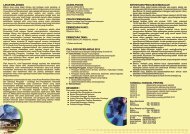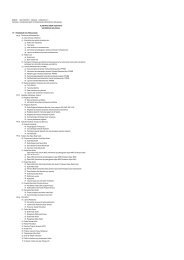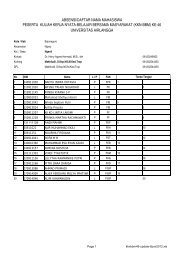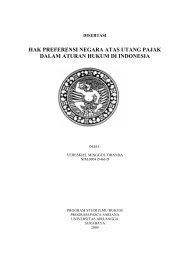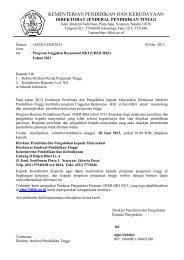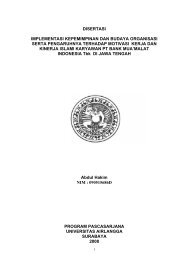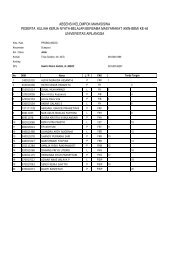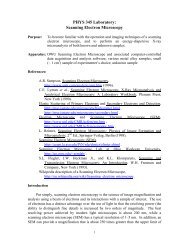Nietzsche's Naturalistic Ethics - UNAIR | E-Book Collection
Nietzsche's Naturalistic Ethics - UNAIR | E-Book Collection
Nietzsche's Naturalistic Ethics - UNAIR | E-Book Collection
Create successful ePaper yourself
Turn your PDF publications into a flip-book with our unique Google optimized e-Paper software.
3.2 More needs to be said for this idea of justice to be helpful. What remains unclear is how broada conception of rights and duties (and hence justice) emerges from Nietzsche’s debtor-creditormodel. Several years earlier, in Dawn, Nietzsche provides us with a “natural history of rights andduties,” which illuminates this notion of a naturalistic social contract:Our duties - are the rights of others over us. How have they acquired such rights? By taking us to be capableof contracting and of requiting, by positing us as similar and equal to them, and as a consequence entrustingus with something, educating, reproving, supporting us. We fulfill our duty – that is to say: we justify the ideaof our power on the basis of which all these things were bestowed upon us, we give back in the measure inwhich we have been given to. It is thus our pride that bids us do our duty – when we do something for othersin return for something they have done for us, what we are doing is restoring our self-regard – for in doingsomething for us, these others have impinged upon our sphere of power, and would have continued to have ahand in it if we did not with the performance of our “duty” practice a requital, that is to say, impinge on theirpower.-- My rights – that are part of my power which others have not merely conceded me, but which they wishme to preserve. How do these others arrive at that? First: through their prudence and fear and caution: whetherin that they expect something similar from us in return (...); or in that they consider that a struggle with uswould be perilous or to no purpose. Or in that they see in any diminution of our force a disadvantage tothemselves, since we would then be unsuited to forming an alliance with them in opposition to a hostile thirdpower. Then: by donation and cession. In this case, others have enough and more than enough power to be ableto dispose of some of it, and to guarantee to him they have given it to the portion of it they have given: in doingso they presuppose a feeble sense of power in him who lets himself be thus donated to. That is how rightsoriginate: recognized and guaranteed degrees of power. (D 112)This discussion is helpful for exploring the account of justice in the Genealogy. In what follows, wewill merely discuss the notion of duty. Parallel considerations apply to rights. On a narrow readingmeasuring things against each other. Christianity, Nietzsche tells us in HAH 114, lacks preciselythat: measure and proportion. Nietzsche also champions justice in the Second UntimelyMeditation, contrasting it with objectivity.19




